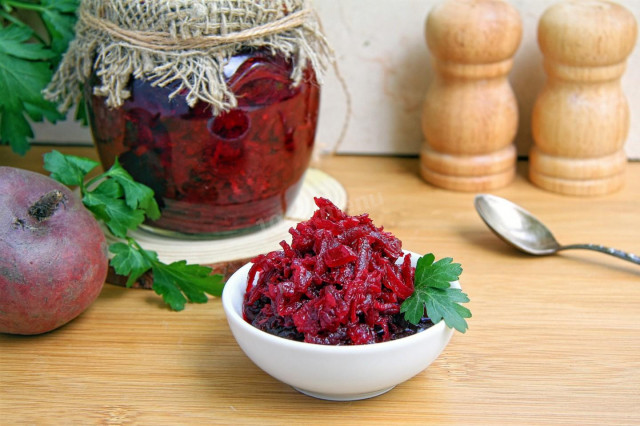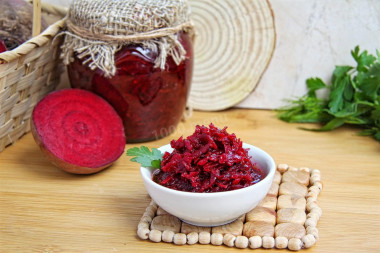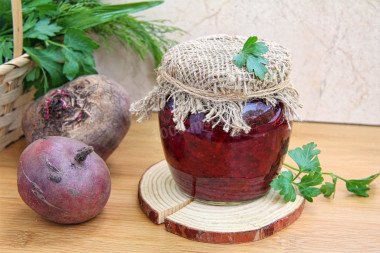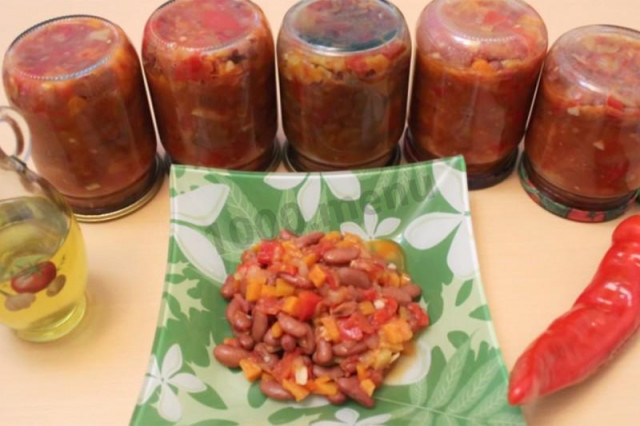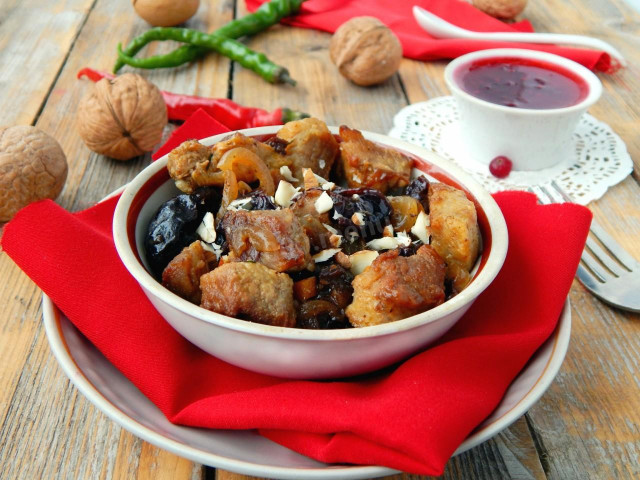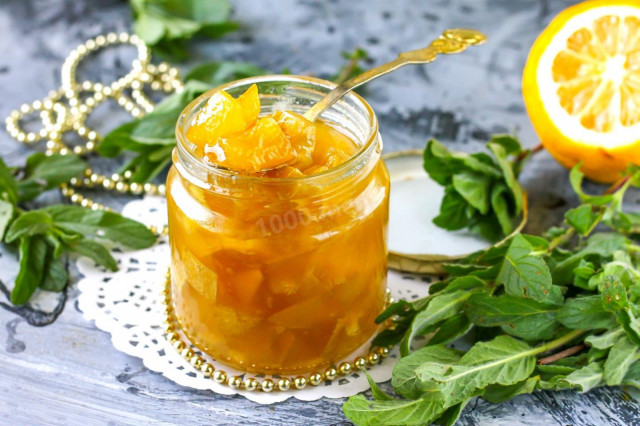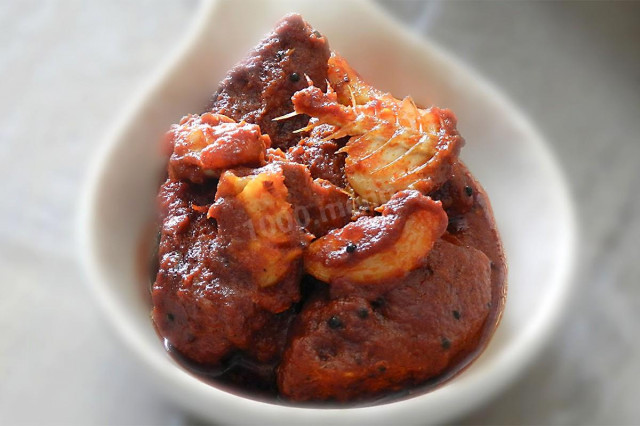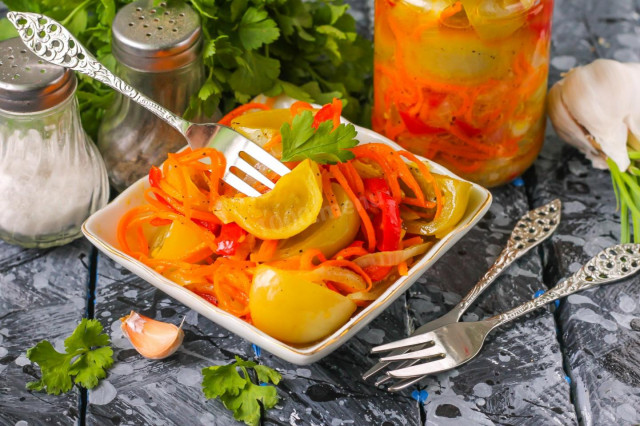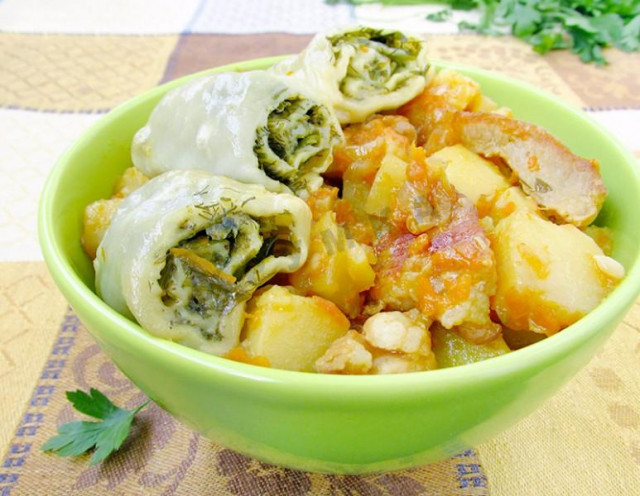Composition / ingredients
Step-by-step cooking
Step 1:
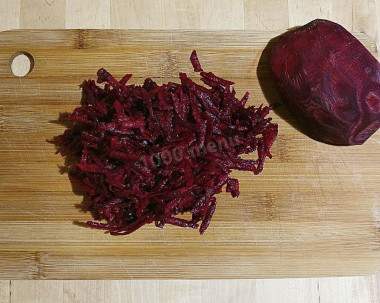
How to make a dressing for borscht for the winter without cabbage? Wash fresh, bright beets, without scuffs and dents with a brush under running water. Peel with a vegetable peeler and grate on a coarse grater. You can cut the beetroot into cubes with a knife.
Step 2:
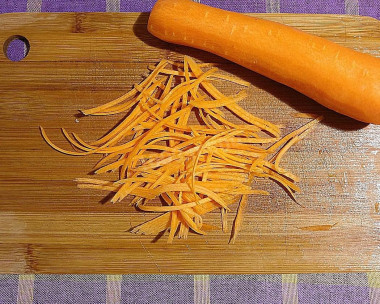
Also wash the carrots under running water, rubbing the peel with a brush. This is necessary in order to get rid of the particles of the earth. Peel the peel. To chop carrots, you can use a grater with large holes or a special knife for slicing.
Step 3:
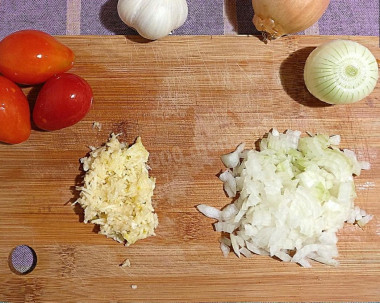
Peel the onion and finely chop it. Garlic is also cleaned and grated on a fine grater. Wash the tomatoes under running water and chop them into medium cubes. You should not get rid of tomato seeds, they will be very useful here.
Step 4:
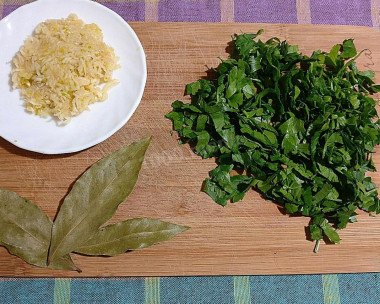
Wash the greens under running water, shake off excess moisture and finely chop. A fragrant lovage, dill or parsley is ideal here. Prepare the bay leaf. I will use three leaves, but you can add two.
Step 5:
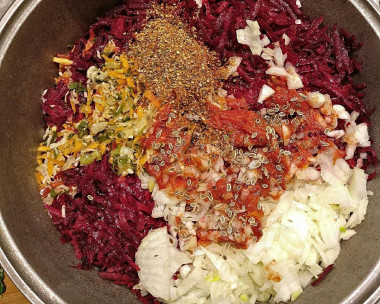
Take a deep pan with thick walls or a cauldron. Wash the ground pepper, remove the seeds and cut into small cubes. Put all the vegetables in a saucepan. Add salt, sugar, vinegar and refined sunflower oil. As well as ground coriander, dill seeds and bay leaf for flavoring. Stir the dressing and simmer it over low heat for about an hour, stirring occasionally. Then, hot, spread out in sterilized jars and seal with lids.
Cans are pre-washed with soda, and then sterilized in any way. I sterilize half-liter jars like this. I pour about a centimeter of ordinary cold tap water into each one and sterilize it in a microwave oven for two minutes at a power of 800 watts. The larger the jar, the more time it takes to sterilize it. Just pour boiling water over the lids.
The dressing turns out bright, spicy and very fragrant. Store such a dressing in a cool dark place. Over the winter, it will not lose a single gram of its color and will remain the same delicious!
Depending on what kind of borscht density you prefer, you can put more or less dressing in the broth.
I usually use half a liter of dressing for a two-liter pot of borscht. At the same time, my broth is always lean with the addition of white beans and a small amount of potatoes. Borscht turns out to be of medium density, a spoon in it is not worth it :)
The rule of working with this dressing is exactly the same as with fresh beet dressing. It should not be boiled in broth for a long time. Just a couple of minutes after re-boiling, and the borscht is ready!
Bon appetit!
How to calculate the number of cans, why banks explode and how to avoid it, as well as secrets and life hacks, read the article about preparations for the winter.
Since the degree of salinity, sweetness, bitterness, sharpness, acid, burning is individual for everyone, always add spices, spices and seasonings, focusing on your taste! If you put some of the seasonings for the first time, then keep in mind that there are spices that it is especially important not to shift (for example, chili pepper).
Caloric content of the products possible in the composition of the dish
- Tomatoes - 23 kcal/100g
- Beetroot - 40 kcal/100g
- Dried beetroot - 278 kcal/100g
- Boiled beets - 49 kcal/100g
- Sweet pepper - 27 kcal/100g
- Carrots - 33 kcal/100g
- Dried carrots - 275 kcal/100g
- Boiled carrots - 25 kcal/100g
- Garlic - 143 kcal/100g
- Bay leaf - 313 kcal/100g
- Parsley greens - 45 kcal/100g
- Dill greens - 38 kcal/100g
- Granulated sugar - 398 kcal/100g
- Sugar - 398 kcal/100g
- Wine vinegar (3%) - 9 kcal/100g
- Vinegar 9% - 11 kcal/100g
- Balsamic vinegar - 88 kcal/100g
- Apple vinegar - 14 kcal/100g
- Vinegar - 11 kcal/100g
- Salt - 0 kcal/100g
- Onion - 41 kcal/100g
- Sunflower oil - 898 kcal/100g
- Refined sunflower oil - 899 kcal/100g
- Ground coriander - 25 kcal/100g

